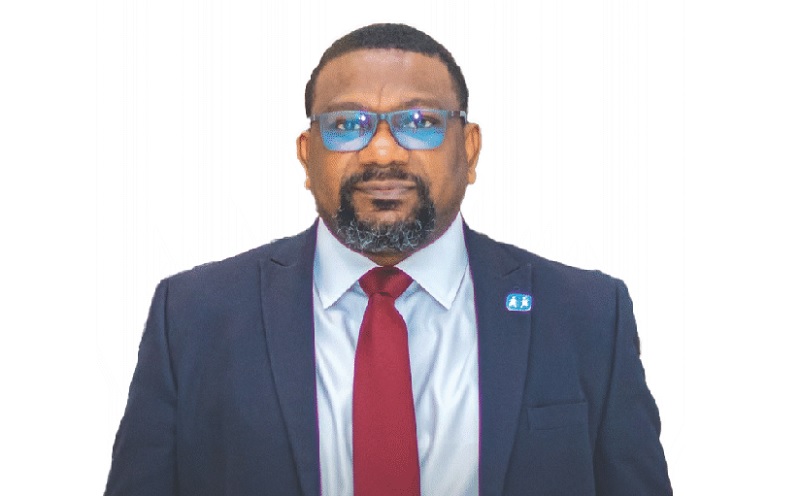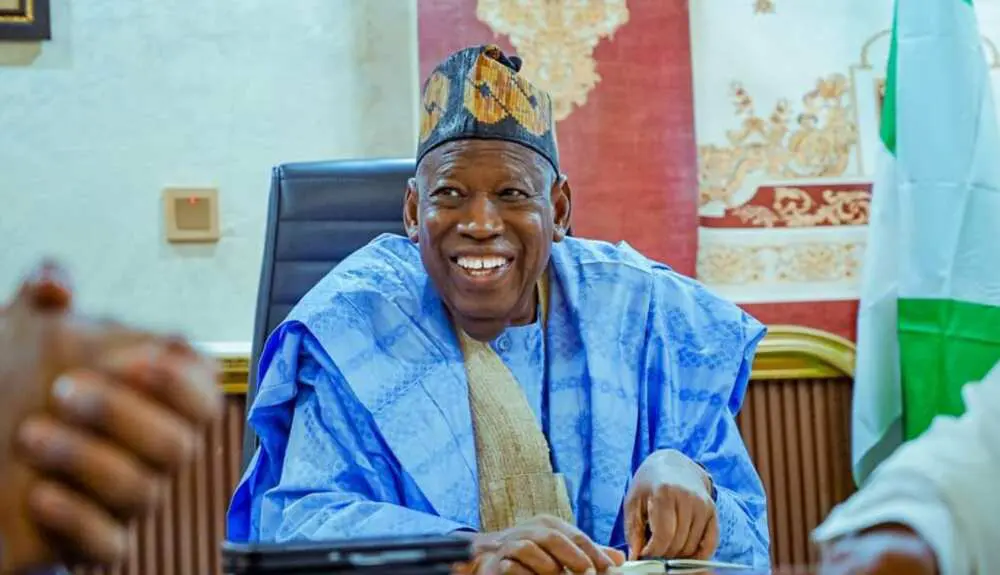In 2012 4 minors and their sponsors requested the Ugandan courts to develop a local weather change mitigation plan and shield kids from the results of local weather change and excessive climate situations. This case stays unresolved. IPS asks if governments are liable in the event that they fail to satisfy obligations in worldwide agreements.
Oct 26 2023 (IPS) – On December 4, 2019, landslides within the Bududa area of Uganda killed 20. The landslides occurred after heavy rains, and a Red Cross report estimated that 96 households have been affected, with 49 homes destroyed. It displaced many, whereas others continued to dwell in high-risk areas that would “slide at any moment.”
This wasn’t the primary or the final incident of flooding – information experiences from the area narrate quite a few incidents the place individuals died when their properties have been buried in landslides after torrential rains.
In Uganda, the case, popularly often known as ‘Tsama William and 47 others,’ has been pending because it was filed in 2020.
Williams and others have argued that the Government of Uganda had been conscious of the chance of landslides in Bududa for a few years, but it surely had not applied landslide early warning methods.
They search aid from the courts, together with declarations that their proper to life, proper to personal property, proper to bodily and psychological well being, and the correct to a clear and wholesome setting have been infringed when landslides occurred.
“Bududa district is likely to suffer from more landslides in the future because of the past history of landslides and, due to factors such as changing rainfall patterns and increasing extreme weather events caused by climate change and environmental degradation, and that if the affected people are not urgently relocated and resettled, further loss of life, loss of property and infringement of human rights is likely to occur,” reads their founding affidavit.
The authorities deny their culpability. Julius Muyizi, the lawyer representing the National Environment Management Authority, as a substitute accused William and different residents within the Mount Elgon area of getting contributed to landslides by way of their poor agricultural practices, vegetation clearance, and poor cultivation.
William and his fellow survivors await a courtroom judgment, but it surely may very well be a protracted wait; one other related case has been held up within the courts for greater than a decade.
However, like many others caught in local weather change-impacted climate occasions and disasters, William is a part of a bunch of survivors who’re more and more utilizing the courts to check whether or not governments, companies, people, and native authorities are accountable for the impacts of local weather change.
Environment and the Judiciary
Justice Lydia Mugambe, a High Court decide and just lately appointed decide on the International Residual Mechanism for Criminal Tribunals, instructed judicial officers at a current coaching session that the judiciary was essential in issues of the setting. She was presenting on judicial officers’ function in making certain local weather justice. One query was: Can people sue the federal government over local weather change?
“I think the role of the judiciary is a very important one in matters of the environment, and we as the judiciary should take it on with gusto,” she stated. “We need to change our mindsets; we need to separate politics from the real issues when cases come before us.”
Mugambe notes that judges want to grasp the function of public curiosity litigation in issues of the setting.
“From my experience in the courts, a case can be brought straightforward as a public interest litigation. But there are cases that come as individual cases. But they are ‘public interest cases’ because of their nature. So, when determining these cases, what kind of remedies do we give?” she requested.
She advised that judges might give treatments in particular person instances which have the impact of making reforms – this may guarantee decision in order that different related instances will not should be prosecuted.
Over the years that Mugambe has labored as a lawyer and later decide, she stated she had watched and witnessed environmental injury to Uganda’s forests and water our bodies and examine local weather change ravaging a number of the communities.
She believes judicial officers ought to take an curiosity in rising legal guidelines just like the nation’s newly enacted environmental legislation.
Judges ought to ask themselves essential questions.
“What do these acts and conventions provide? And how can we use them in our judgments? And then what kind of remedies when these cases come before us? Are they meaningful remedies for environmental protection? Do we assess the context of the case before us so that we take account of all the factors?” advised Mugambe.
The coaching session Mugambe was addressing was hosted by an setting advocacy NGO often known as Greenwatch.
Advocacy and Environmental Laws
Greenwatch says it is essential that each particular person in Uganda is aware of that they’ve environmental rights, and these rights may be absolutely exercised by way of entry to info, justice, and public participation.
Samantha Atukunda Mwesigwa, the director and authorized Counsel at Greenwatch, instructed IPS that coaching of the judicial officers was important as a result of there have been a number of environmental disputes within the courts.
“So, it’s important to have a judiciary that is knowledgeable and equipped when it comes to climate aspects, in particular, climate justice,” Mwesigwa defined.
Uganda has joined the worldwide pattern of local weather litigations through which victims of local weather change cite human rights and constitutional violations of their arguments.
The current Global Trends in Climate Change Litigation: 2021 snapshot acknowledged the essential function judges can play within the context of local weather justice. Training of Judges was one of many important areas of concern.
Furthermore, On March 28, the United Nations General Assembly (UNGA) adopted a historic decision asking the International Court of Justice (ICJ)–the UN’s principal judicial organ–to present an advisory opinion clarifying what governments’ obligations are below worldwide legislation in terms of tackling local weather change.
Justice Richard Buteera, the Deputy Chief Justice of Uganda, agrees that the coaching is important as a result of the judges are a part of the vanguard of the environmental legal guidelines.
“We have to balance between human needs for now. But sustaining the environment for the future. Because in an effort to maintain the environment, these conflicts have to be resolved by courts. And the training is making clear the position of the law,” stated Buteera, who beforehand served as Uganda’s Director for Public Prosecutions.
Each time a brand new cohort of judges is available in for coaching, a wealth of data wants consideration. Some judges know just a few issues about worldwide agreements just like the Kyoto Protocol and the 2015 Paris Agreement, however as a result of local weather change and legislation aren’t on a regular basis matters of their chambers, some are skeptical about it.
Bridget Ampurira, a lawyer with Greenwatch, has participated within the coaching that began in 2019.
She instructed IPS, “Of course, there are judicial officers who will point out that they are skeptical about climate change and climate Justice. So, they will point out and question us as to the reality of climate change. But there are those who have seen and realized that climate change is a real issue.”
Over 120 judicial officers have been skilled. According to Ampurira, of those that have been skilled, there was progress in how they deal with the instances earlier than them.
“I can say in terms of court procedure, there has been great improvement in the attention accorded to climate change cases.”
Who is Liable Under International Law?
The late Justice of the Court of Appeal, Kenneth Kakuru, nonetheless known as certainly one of Uganda’s entrance runners of environmental legislation, would increase questions every time he addressed fellow judges.
“Is the government liable for failure to implement the obligations in international agreements? For example, we have seen children trying to go through a flood. This flood takes a child. Who is liable if the government has not obliged with its obligations?” requested Kakuru. “We owe it to ourselves and the citizens of this world; we owe it to those from whom we inherited this beautiful place. We owe it to our children and their children. To those yet unborn. The time is now, for tomorrow may be too late.”
While the coaching of judicial officers continues, instances earlier than the Ugandan courts stay unresolved.
Climate Cases Before Ugandan Courts
Greenwatch has, through the years, filed a number of public curiosity litigations below Uganda’s structure, which permits a person or group the correct to sue the federal government the place it has failed its obligations. Some of the rights may be environmental or local weather change elated.
One of these instances is the one generally often known as the ‘Nisi Mbabazi.’ It was filed by Kakuru in 2012 earlier than he was appointed a decide. Kakuru sued on behalf of the surviving minor kids of the victims of a pure catastrophe.
The plaintiffs argued that Article 237 of the Ugandan Constitution makes the federal government of Uganda a public trustee of the nation’s pure resources–including its atmosphere–and that Articles 39 and 237 require the federal government to protect these sources from degradation for each current and future generations. Citing a number of examples of injury and lack of life ensuing from excessive climate occasions, they alleged that the federal government has breached its constitutional obligation.
Climate Justice Denied
Eleven years later, there’s nonetheless no judgment on this case. Some activists have described the lengthy look forward to judgment as an injustice towards victims of local weather due to the delays.
Ampurira stated one of many challenges Greenwatch has confronted prior to now has been the delay with the justice or a courtroom system beset by adjournments. “So, you would find that a case that should take a year to be settled takes ten years.”
She advised that the Uganda authorities ought to set up an environmental courtroom like those established by Kenya to expedite the instances “Because we are saying justice delayed is justice denied. Kenya has two specialised fora for adjudicating environmental issues.
Sign up at no cost AllAfrica s Get the most recent in African information delivered straight to your inbox
On July 16, 2023, the Land and Environment Court in Kenya awarded an equal of USD 13 million in compensation for the impacts on the setting and the well being of a group attributable to lead poisoning from a close-by smelter that recycled batteries.
It was the primary in Uganda the place victims of local weather change-related disasters sued the federal government, asking it to adjust to a number of articles of the Paris Agreement 2015 and articles of the UN Framework Convention on Climate Change (UNFCCC), which Uganda is a state get together.
Peter Kibeti, who witnessed many landslides in Bududa, instructed IPS, “The landslides are not in a way related to destroying trees. But it has been due to heavy rains. The water has sunk into the soil, leading to the collapse of the slopes. We still have many trees in Bududa. Much as they say we should plant more trees – they also get uprooted by landslides. I cannot believe that cutting down trees causes landside because heavy rains have weakened the soil.”
Yazidhi Bamutaze, an Associate Professor within the Department of Geography, Geo-Informatics, and Climatic Sciences at Makerere University, instructed IPS that the lack of vegetation and tree cowl in Bududa can’t be solely blamed for the rampant landslide disasters.
“We have had previous cases, and they are a combination of factors that lead to the occurrences of landslides in that area. The slopes are quite steep. In some areas, they go over 80 degrees. Then you also have the climatic factors, particularly rainfall. If you look at the data, you realize you get over 1500 millimeters of rainfall,” he stated, explaining the multiplicity of causes for the disasters.
International Climate Justice Cases
Internationally the variety of local weather change instances has greater than doubled from 884 in 2017 to 2,180 in 2022, based on the UN Environment Global Climate Litigation Report: 2023 Status Review.
This pattern consists of instances introduced on behalf of “children and youth under 25 years old, including by girls as young as seven and nine years of age in Pakistan and India, respectively, while in Switzerland, plaintiffs are making their case based on the disproportionate impact of climate change on senior women.”
The caseload signifies that human rights hyperlinks to local weather change, safety of essentially the most susceptible teams, and “increased accountability, transparency and justice, compelling governments and corporations to pursue more ambitious climate change mitigation and adaptation goals” are growing.
IPS UN Bureau Report
Follow @IPSNewsUNBureau



